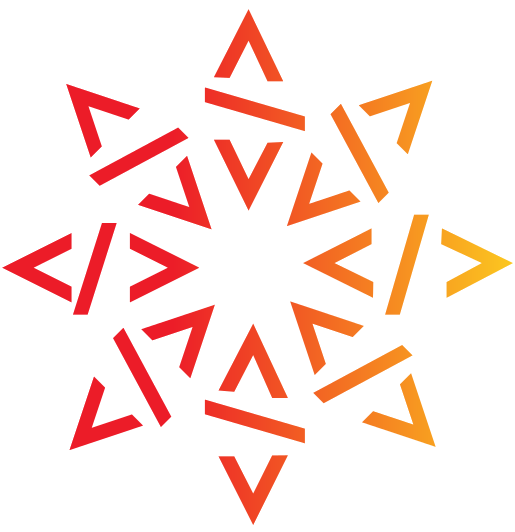Partnering in the FAIR-IMPACT Open Call to implement the Research Software Metadata Guidelines

We’re happy to share with you a new opportunity emerging from the FAIR-IMPACT European project: the Research Software support offer. Software Heritage is a partner in the FAIR-IMPACT project to increase recognition of research software and improve software curation and metadata standardization in the scholarly ecosystem. The current support offer is open to researchers, practitioners, scholarly infrastructures, institutions and anyone interested in research software.
The FAIR-IMPACT project launched in June 2022, has the role to support and disseminate FAIR-enabling practices, tools and services across scientific communities at a European, national and international level. Software Heritage’s role in the project is to establish guidelines for the collection and the curation of metadata to archive, reference, describe and cite research software. In June 2023, the Research Software MetaData (RSMD) Guidelines were published on Zenodo following a community workshop in March and a community review webinar in May.
Understanding the RSMD Guidelines
The RSMD Guidelines, written by Task 4.3 in the FAIR-IMPACT project, provide a comprehensive framework, offering flexible and adaptable recommendations for end-users across various disciplines and software development contexts. This deliverable encompasses:
- Introduction of goals, methodology, and use cases
- State-of-the-art review of existing practices and guidelines
- Comprehensive analysis of the metadata landscape
- Proposal for RSMD guidelines to collect and curate research software metadata
- A clear checklist for researchers
A living version of the document version will be available on the RSMD Guidelines repository.
Moving toward adoption
The journey doesn’t end with the proposal. Task 4.3 is committed to making the RSMD Guidelines normative within the academic community. This involves ongoing engagement with stakeholders, gathering feedback, and incorporating best practices and advancements in metadata management. By establishing these guidelines as a norm, the aim is to promote widespread adoption and adherence, leading to greater standardization and harmonization of metadata practices across research domains.
We offer two support actions that are designed to enhance the FAIRness and impact of research software:
- Path I: Assessing and improving existing research software using a new extension of F-UJI which implements some of the metrics for automated FAIR software assessment. Successful applicants to this support action will receive 4000 € to support their participation between May-September 2024.
- Path II: Implementing the Research Software MetaData guidelines for better archiving, referencing, describing, and citing research software artefacts. Successful applicants to this support action will receive 6000 € to support their participation between May-September 2024.
How can I implement the RSMD guidelines in the FAIR-IMPACT Open Call?
This goal can be achieved in many forms with the high-level purpose to better archive, reference, describe and cite research software artifacts.
Participants in path II of the support action will suggest implementation activities in their own resources or contributions to Open Source / Open Science existing projects, such as CodeMeta.
Mentored by software metadata experts, participants will strive to implement the RSMD guidelines, throughout a month-long challenge and will complete it by writing a detailed implementation story to showcase the adoption of the RSMD guidelines. The outputs will be released in open access via Zenodo.
This support action will consist of four virtual workshops.
- Introductory session to provide context and background and to introduce scholarly infrastructures and tools to make Research Software a first class output (May);
- Introduction to the RSMD guidelines and examples of adoption (May);
- One day sprint to progress planned implementation activity (June);
- Post-assessment workshop where the Implementation story will be presented (September).
How to submit your proposal?
Apply on the Open Call page, after creating an account, you’ll find the form on the grants application dashboard. applications should include:
- Your name, contact details and organisational affiliation. Where the application is being made on behalf of a group, a nominated lead participant will need to provide these details;
- The type of organisation you are based at; The country you are based in (Please note that applicants must work in a European Union or Associated Country for the duration of the grant. For a full list of Associated Countries see here);
- Proposal for implementing the RSMD guidelines (Max. 500 words): What are the objectives of your proposed Research Software MetaData (RSMD) implementation? Additionally, specify how you plan to achieve this objective. A few examples are listed below
- CodeMeta mapping tools;
- Import/export tools in a software infrastructure;
- UI improvements to facilitate software submissions;
- SWHID exposure on software record;
- Institutional documentation based on the RSMD guidelines;
- Contribution to the existing CodeMeta generator or to the CodeMeta community.
- Impact, adoption and dissemination
- Describe how your participation in this support action will impact your work/project.
- Describe how participating in the support action will support the wider adoption and uptake in your field of the tools, methods, and/or solutions employed.
- Describe how you will disseminate the results of your participation in this support action.
Conclusion
The FAIR-IMPACT open call, with its focus on enhancing research software FAIRness and implementing metadata guidelines, presents a significant opportunity for collaboration and advancement. Together, let’s adopt and implement the RSMD Guidelines and work towards a future where research software is acknowledged as a first class output.
For further inquiries about the RSMD Guidelines or the FAIR-IMPACT project, feel free to reach out to: opencalls[at]fair-impact.eu
Your contributions are invaluable as we strive to build a more open and curated research software landscape.
